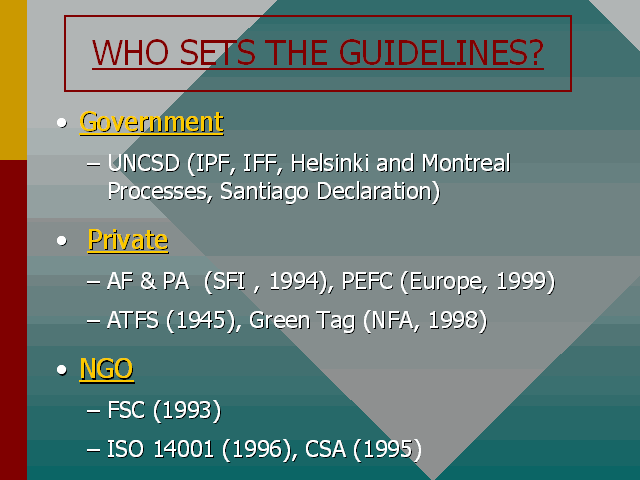Slide 10 of 27
Notes:
Various international governemental efforts have spun-off of the 1992 UNCED in Rio de Janeiro. The Intergovernmental Panel on Forests and its successor the Intergovernmental Forum on Forests were established by the UNCSD and have worked unsuccessfully to establish a binding international agreement regarding the sustainable management of forests. The Helsinki Ministerial Conference on the Protection of Forests in Europe established six criteria for sustainable forests and the Working Group on Criteria and Indicators for the Conservation and Sustainable Management of Boreal and Temperate Forests (held in Montreal) lead to the Santiago Declaration (1995) which established seven criteria for forest sustainability. These criteria and their accompanying indicators are to be used nationally to assess the attainment of sustainable forestry practices.
Numerous organizations have utilized the international criteria and indicators to help define national/regional standards. The American Forest and Paper Association established the Sustainable Forestry Initiative for use on forest industry lands in the USA. In 1998, non-AF&PA members also became eligible to become SFI Licensees. The Pan European Forest Certification scheme is a voluntary private sector initiative based on a consensus view among relevant interested parties on sustainable forest management at the national or regional level. To date, seventeen European countries are participating in the establishment of mutually compatible national certification systems. Both SFI and PEFC endorse third party verification of established standards.

















